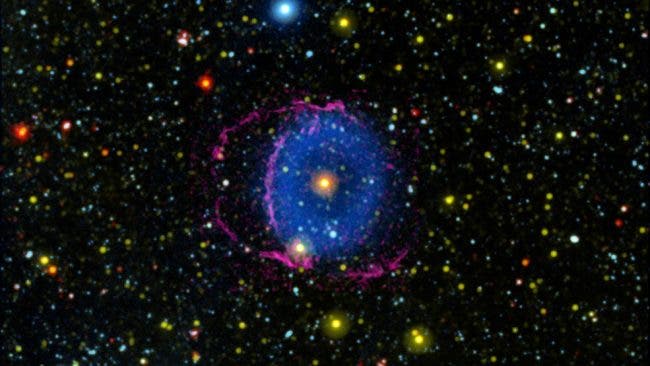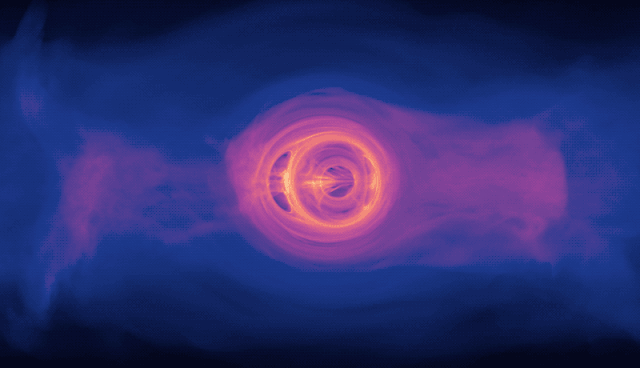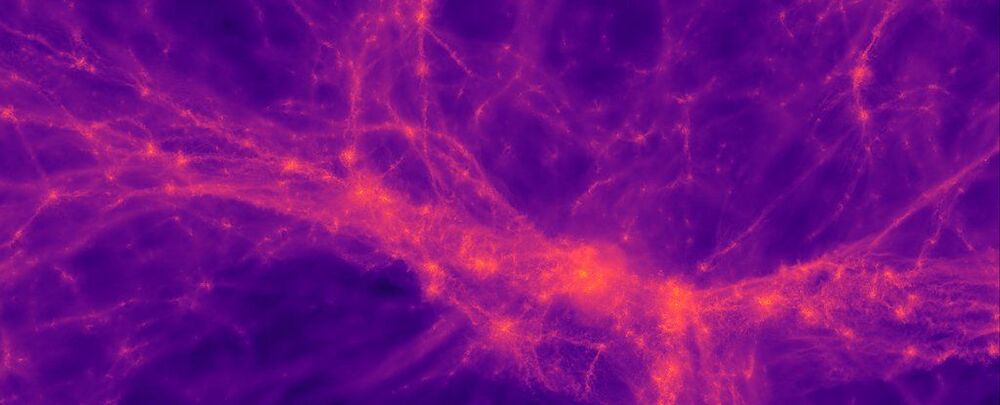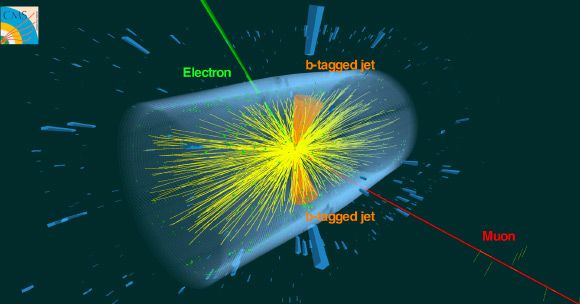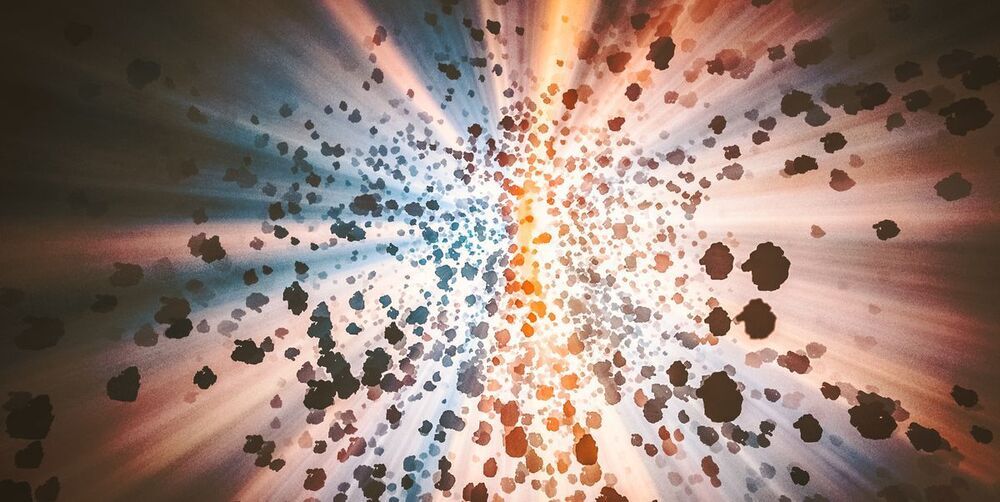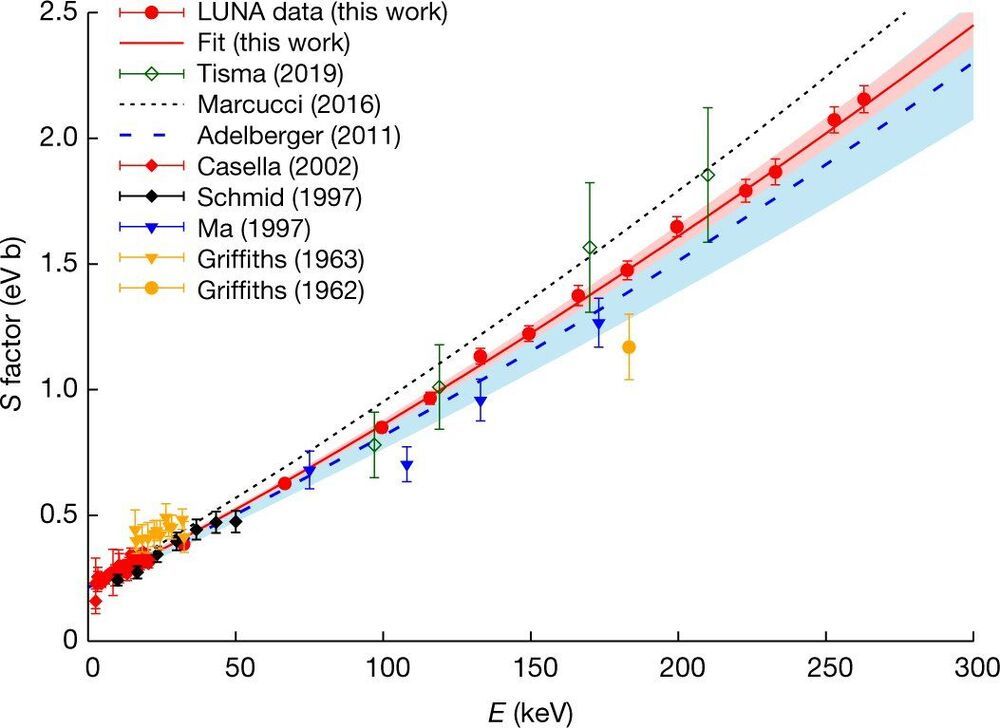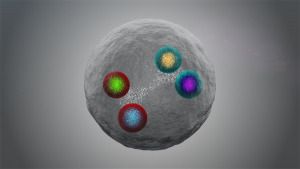“We were in the middle of observing one night, with a new spectrograph that we had recently built, when we received a message from our colleagues about a peculiar object composed of a nebulous gas expanding rapidly away from a central star,” said Princeton University astronomer Guðmundur Stefánsson, a member of the team that discovered a mysterious object in 2004 using NASA’s space-based Galaxy Evolution Explorer (GALEX). “How did it form? What are the properties of the central star? We were immediately excited to help solve the mystery!”
A 16-Year-Old Mystery
NASA announced today that it has solved the 16-year-old mystery of the object –similar in size that of a supernova remnant–unlike any they’d seen before in our Milky Way galaxy: a large, faint blue cloud of gas in space with a living star at its center. Subsequent observations revealed a thick ring structure within it, leading to the object being named the Blue Ring Nebula.
